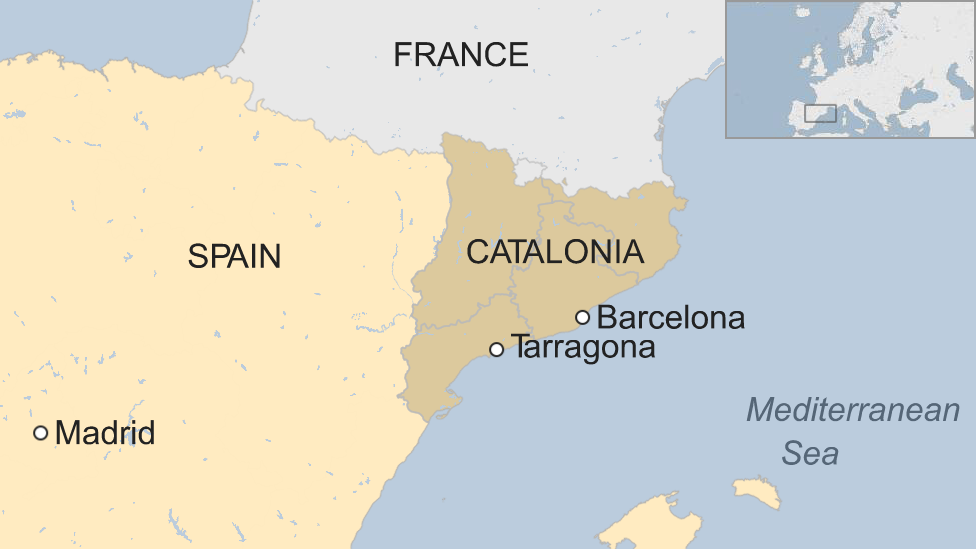Catalan protests: Fresh clashes after Spain jails separatist leaders
- Published
On Tuesday, there were violent scenes as clashes erupted between protesters and police
Thousands of people in Catalonia have rallied in support of the region's independence from Spain for a second day, leading to clashes with police.
Fires were started and protesters attempted to storm government offices in Barcelona, the regional capital.
It follows the sentencing on Monday of nine Catalan separatist leaders.
A spokesperson for Catalonia's regional government, Meritxell Budó, said they sympathised and understood the anger of the protesters.
Meanwhile, Spanish authorities say they are investigating who is co-ordinating the disruption.
Protesters have reportedly been using an app known as Tsunami Democratic, which directs them to protest sites in Catalan cities.
In Barcelona, riot police fired tear gas and charged a crowd of protesters who were trying to access government buildings.
There were three arrests, and local media reported that nine people had been treated by medical services.
Protests were also reported in the Catalan cities of Girona and Tarragona.
Pro-independence leaders - who control the Catalan regional government - say they will keep pushing for a new referendum on secession from Spain.
Why are people protesting?
The protests began after nine Catalan independence leaders were handed jail sentences of between nine and 13 years by Spain's Supreme Court on Monday.
The separatists were convicted of sedition over their role in an independence referendum in 2017, which Spain said was illegal.
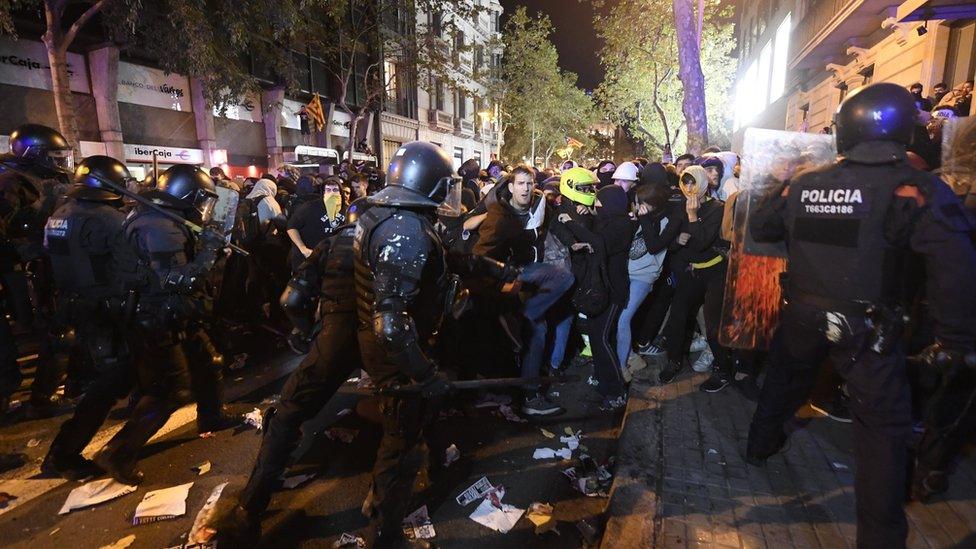
Riot police held protesters back from storming Spanish government buildings in Barcelona
Another three were found guilty of disobedience and fined, but not jailed. All 12 defendants denied the charges.
Joan Tardà, the former deputy leader of a pro-Catalan independence party, has called for peaceful protests.
"There is nothing more lethal to independence than the combination between a violent minority action on the street and an uncontrolled police force," he said on Twitter.
Clashes broke out on Monday as protesters blocked road access to Barcelona's El Prat airport
On Monday, thousands of protesters blocked roads to Barcelona's El Prat airport - a major transport hub.
More than 100 flights were cancelled as demonstrators fought running battles with riot police at the terminal buildings.
What is behind the Catalonia unrest?
Catalan nationalists have long complained that their region, which has a distinct history dating back almost 1,000 years, sends too much money to poorer parts of Spain, as taxes are controlled by Madrid.
The wealthy region in Spain's north-east is home to about 7.5 million people, with their own language, parliament, flag and anthem.
In September, a march in Barcelona in support of Catalonia's independence from Spain drew crowds of about 600,000 people - one of the lowest turnouts in the eight-year history of the annual rally.

- Published15 October 2019
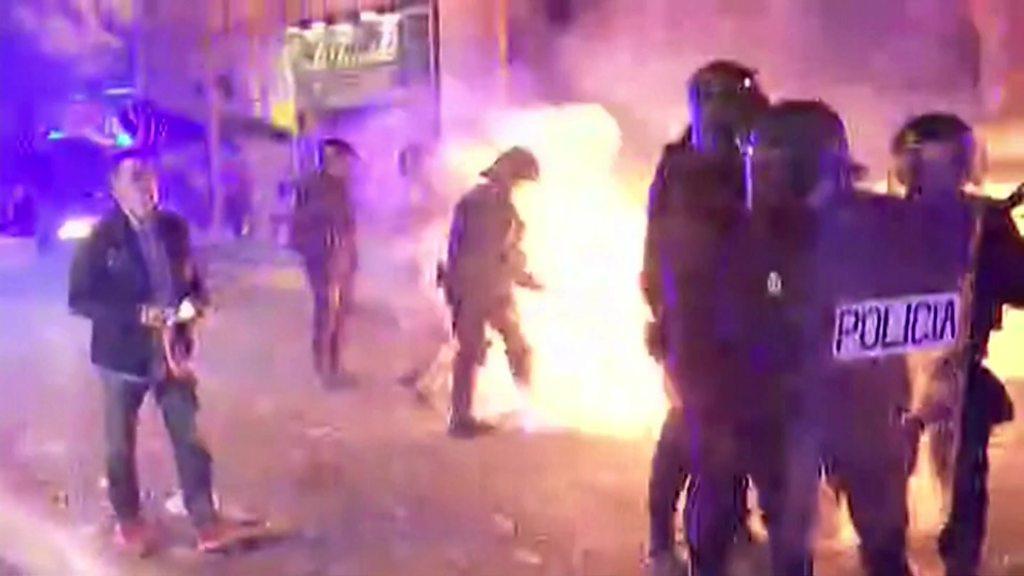
- Published14 October 2019
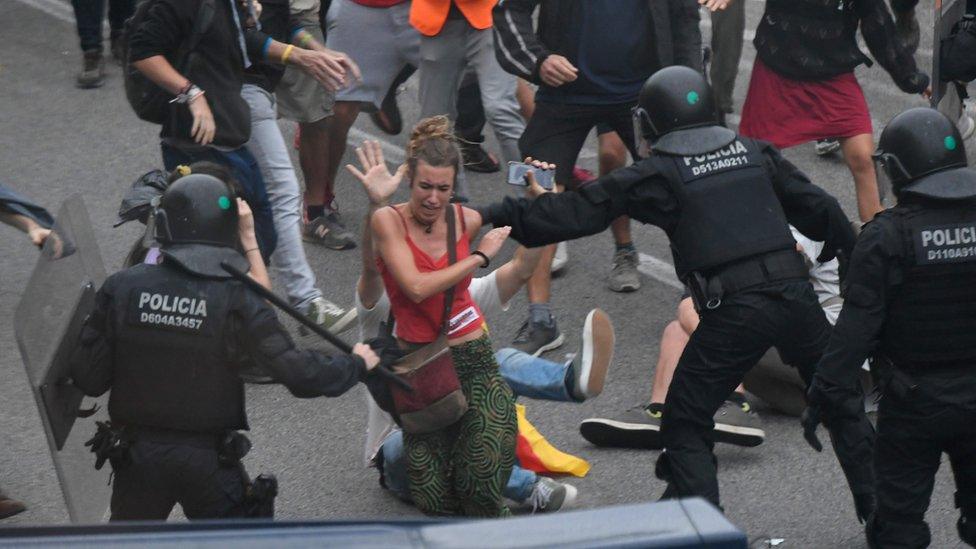
- Published14 October 2019
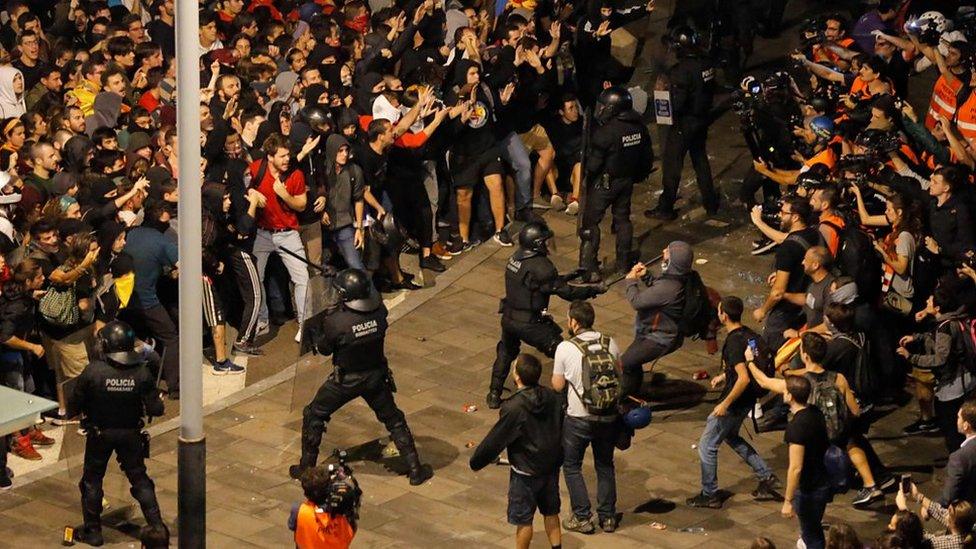
- Published26 March 2018
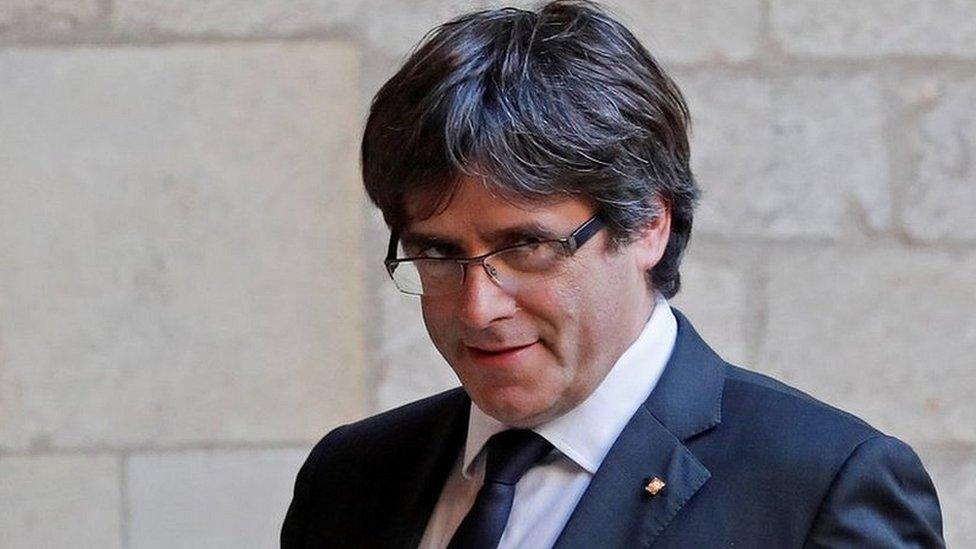
- Published21 August 2023
